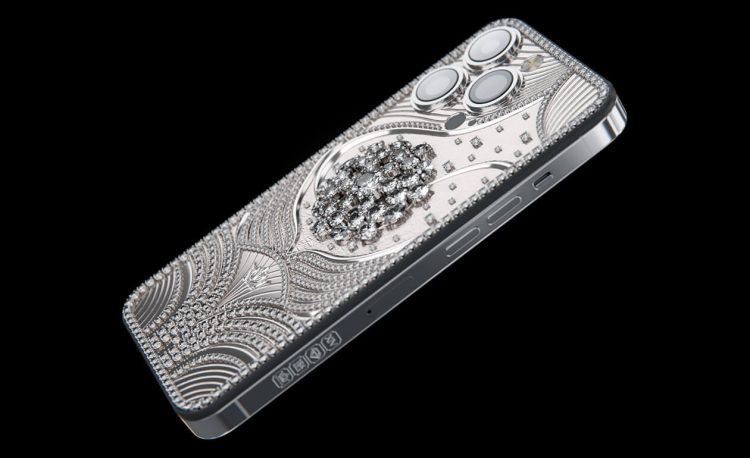Caviar, a Russian company that specializes in luxurious smartphone customization, recently unveiled the iPhone Diamond Snowflake, the most expensive iPhone ever made.
The iPhone 15 hasn’t even been launched yet, and it’s already advertised as the most expensive iPhone ever made. Not the stock version, though! That one is expensive enough, but it’s nowhere near the Diamond Snowflake designed by Russian luxury customization company, Caviar. This uber-exclusive version of Apple’s newest handheld features a custom case made of 18K white gold and inlaid with no less than 570 individual diamonds, as well the pendant of the Snowflake Graff necklace made by famed English jeweler Graff. The pendant itself is made of platinum, white gold with inlaid diamonds. The price of this handmade masterpiece – a whopping $562,700.








